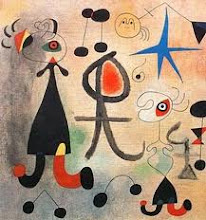
The following is a compilation from different sources to explain my philosophy of teaching visual arts:
“You are a life-line to a source of vitality, and strength which is so rare in society”
Teaching Art Philosophy:
Students need opportunities to revisit skills and areas of knowledge so that they can expand their repertoire and increase the complexity of their understanding.
- to learn about different periods of art, about different artists of that time period, and about the different techniques used by the artist. Then, they will use the techniques they learned and manipulate different media into creative pieces of art.
- to make the familiar strange -- to impart an awe for discovery in learning and to create situations where students perceive things with freshness.
- to spark student-owned ideas and processes – where students take charge of learning through critical thinking and transformed by the powers of their own thought. Art is improved by critical exercise. knowledge gained through inquiry is retained longer. Freeing student from the old idea that they are peripheral spectators in a drama (Freire, 1974).
- to use positive reinforcement to keep students interested and involved.
- to be a model. Teachers who model their own ongoing process of discovery help students to learn anew virtually every class, empowering them with enthusiasm and self confidence. The teacher needs to communicate not only a knowledge of the subject matter, but also interest in and enthusiasm for the subject matter.
- to organize classes so that students find them friendly and free of guesswork. Explain clearly to students what is necessary in order to do well, without making it sound any harder or easier than it actually is.
- to update content and methods. The term “praxis means” was coined by Paulo Freire and it means “reflexive action”. Good teaching and research are intimately related. Studying our practice and its underpinning assumptions enables us to develop a creative and critical understanding of ourselves, and our processes of learning and growth. We become theory generators as well as theory users.
- to help students probe how they have come to know what they believe to be true.
- to culturally train young people so they can both observe and appreciate the more subtle things of life (like detectives).

No comments:
Post a Comment